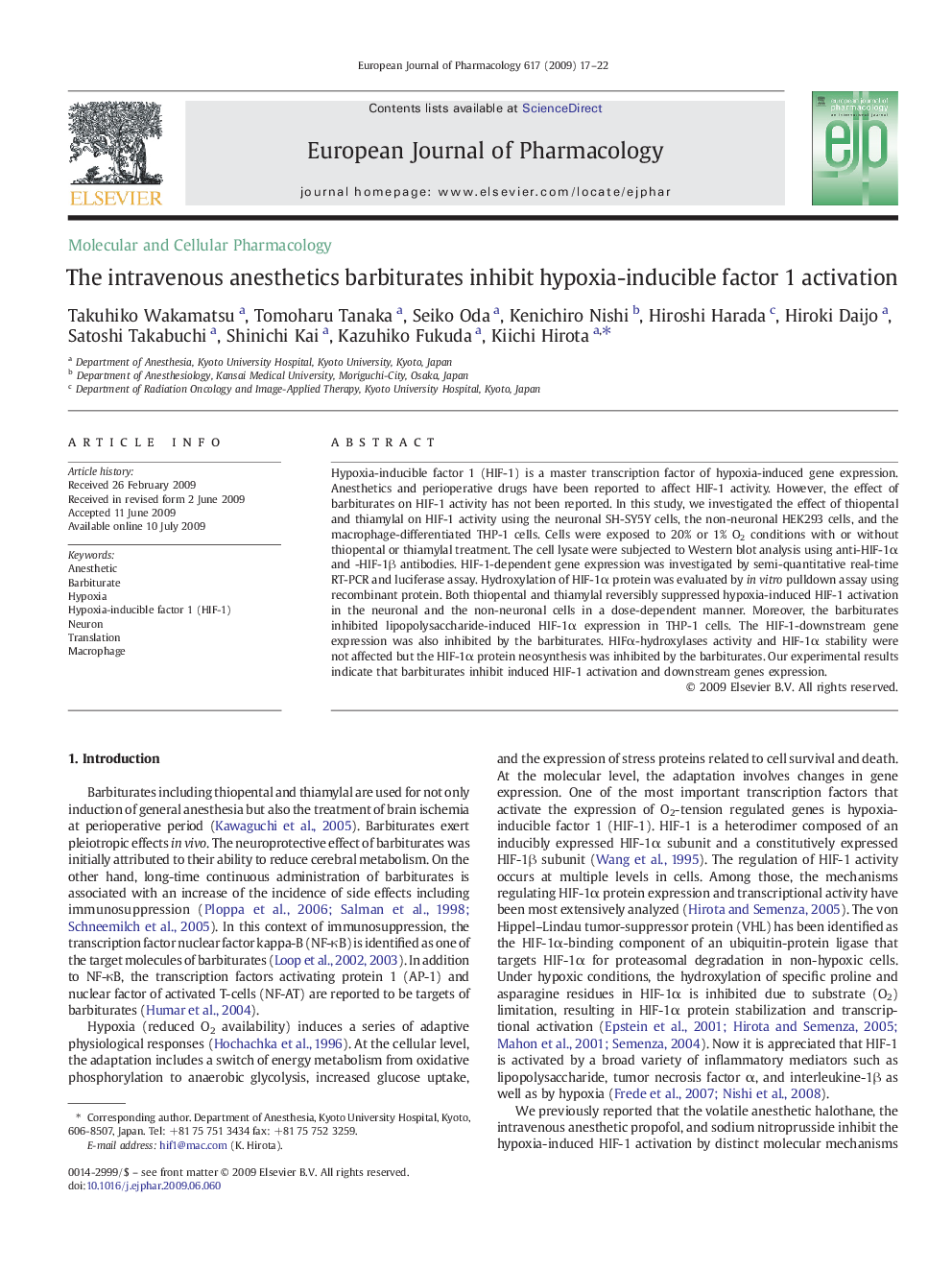| Article ID | Journal | Published Year | Pages | File Type |
|---|---|---|---|---|
| 2534066 | European Journal of Pharmacology | 2009 | 6 Pages |
Hypoxia-inducible factor 1 (HIF-1) is a master transcription factor of hypoxia-induced gene expression. Anesthetics and perioperative drugs have been reported to affect HIF-1 activity. However, the effect of barbiturates on HIF-1 activity has not been reported. In this study, we investigated the effect of thiopental and thiamylal on HIF-1 activity using the neuronal SH-SY5Y cells, the non-neuronal HEK293 cells, and the macrophage-differentiated THP-1 cells. Cells were exposed to 20% or 1% O2 conditions with or without thiopental or thiamylal treatment. The cell lysate were subjected to Western blot analysis using anti-HIF-1α and -HIF-1β antibodies. HIF-1-dependent gene expression was investigated by semi-quantitative real-time RT-PCR and luciferase assay. Hydroxylation of HIF-1α protein was evaluated by in vitro pulldown assay using recombinant protein. Both thiopental and thiamylal reversibly suppressed hypoxia-induced HIF-1 activation in the neuronal and the non-neuronal cells in a dose-dependent manner. Moreover, the barbiturates inhibited lipopolysaccharide-induced HIF-1α expression in THP-1 cells. The HIF-1-downstream gene expression was also inhibited by the barbiturates. HIFα-hydroxylases activity and HIF-1α stability were not affected but the HIF-1α protein neosynthesis was inhibited by the barbiturates. Our experimental results indicate that barbiturates inhibit induced HIF-1 activation and downstream genes expression.
